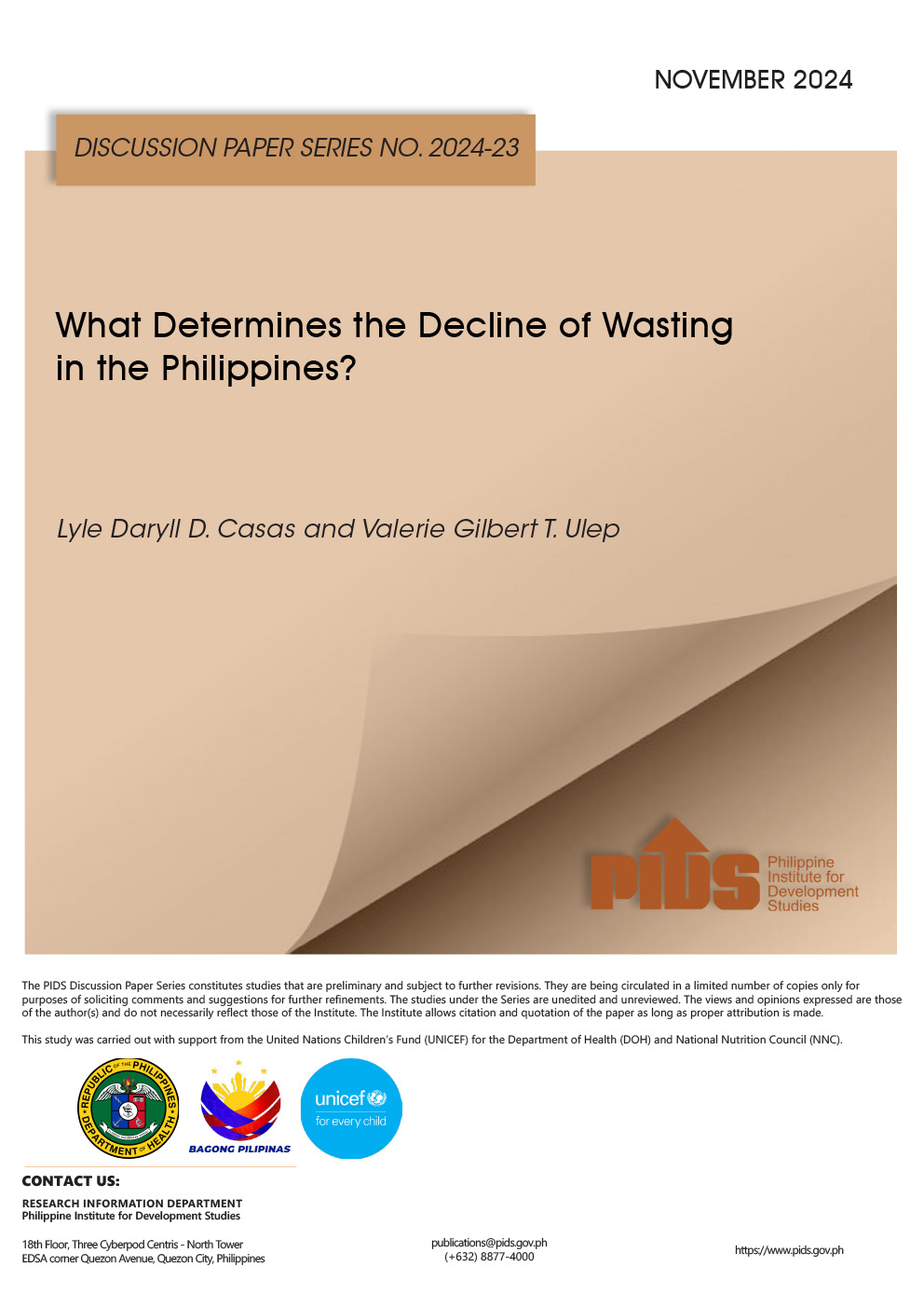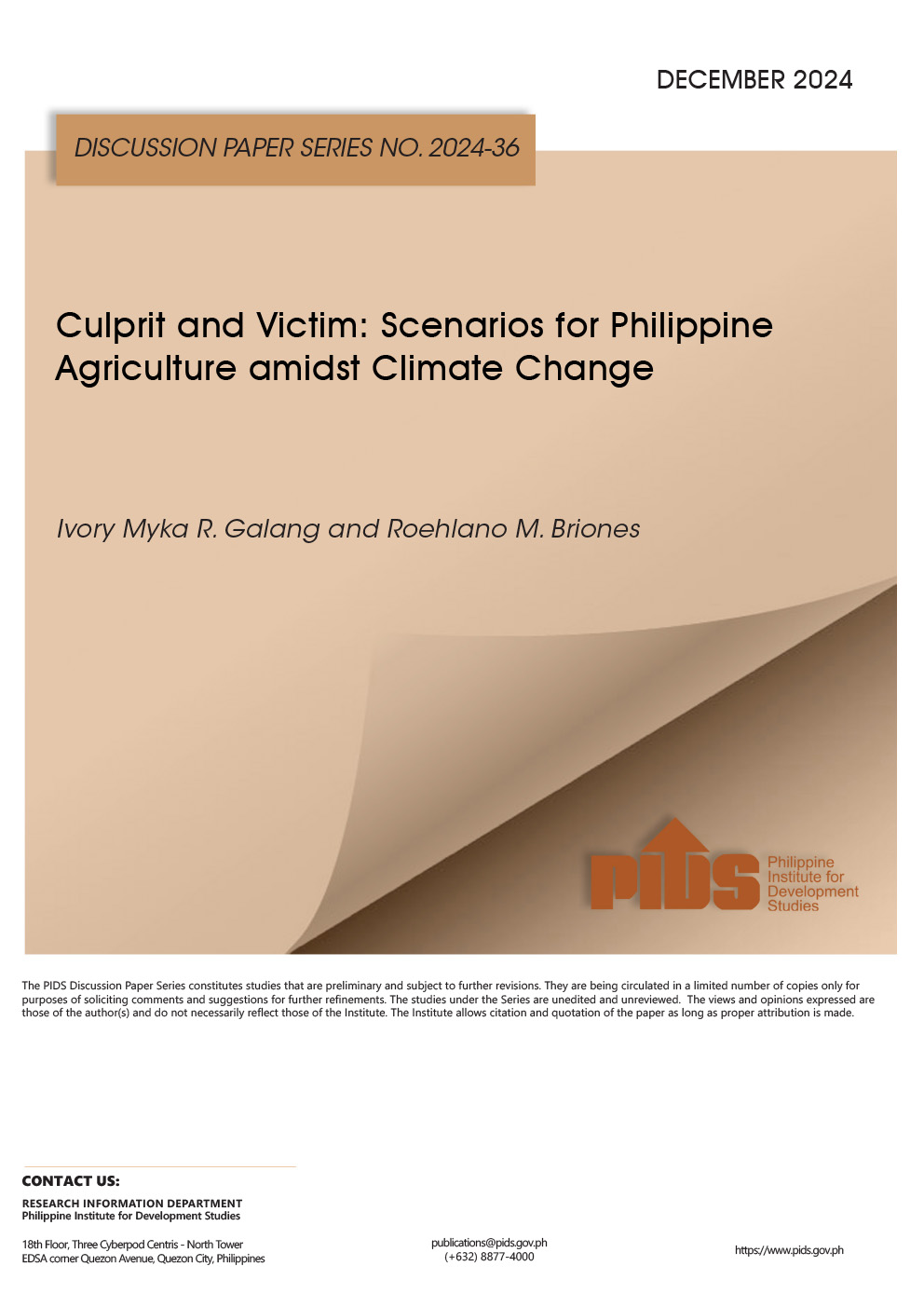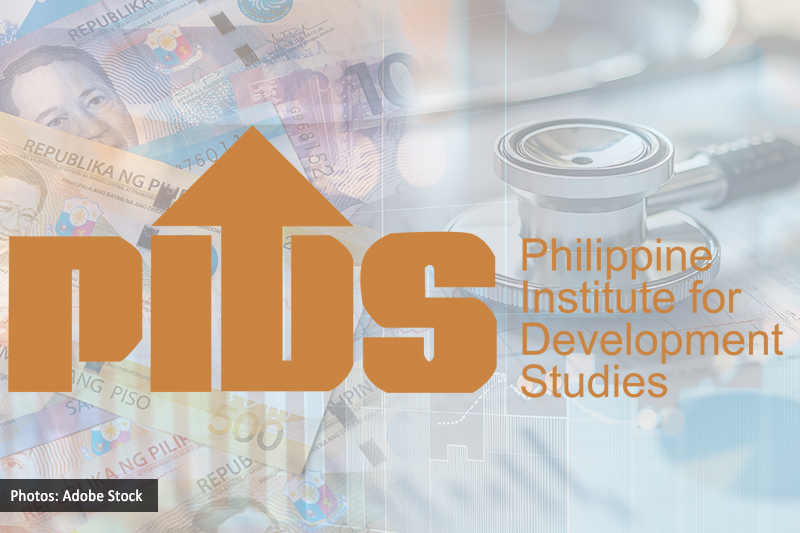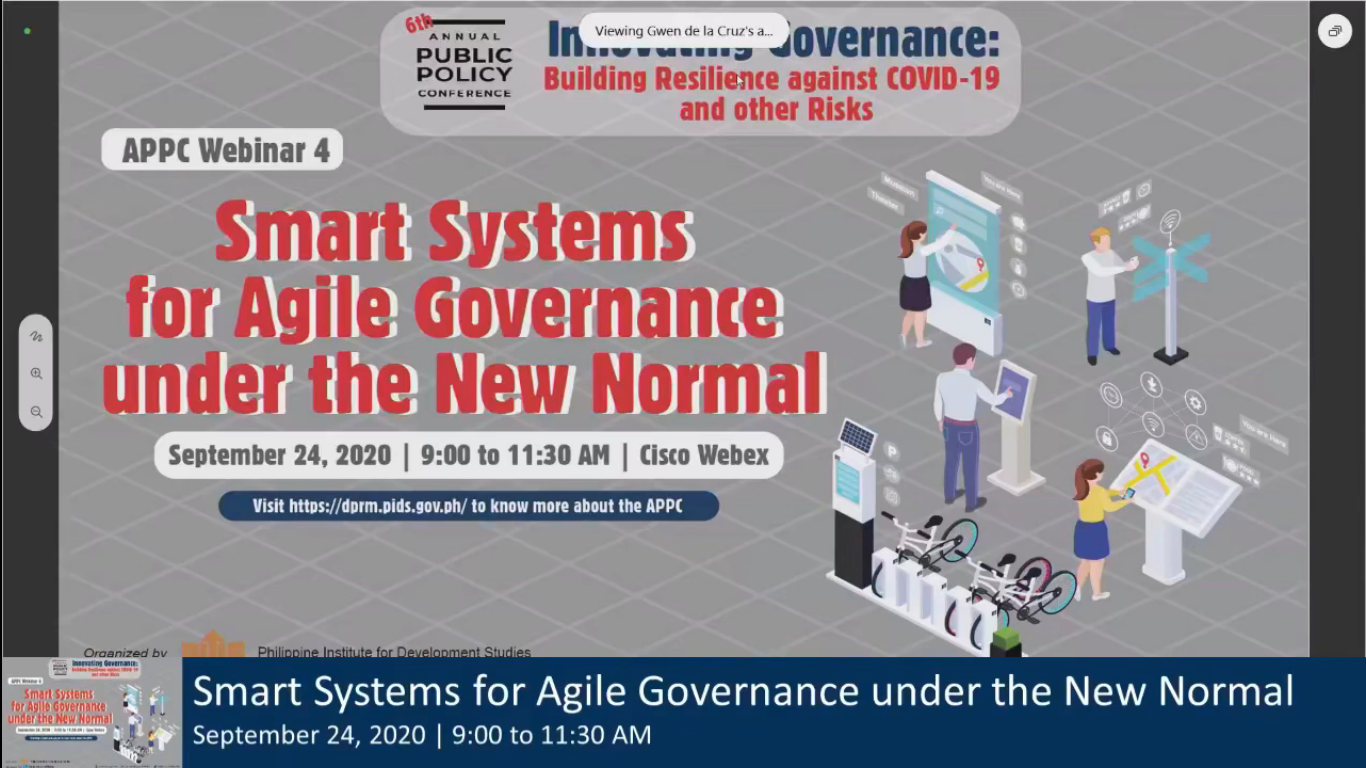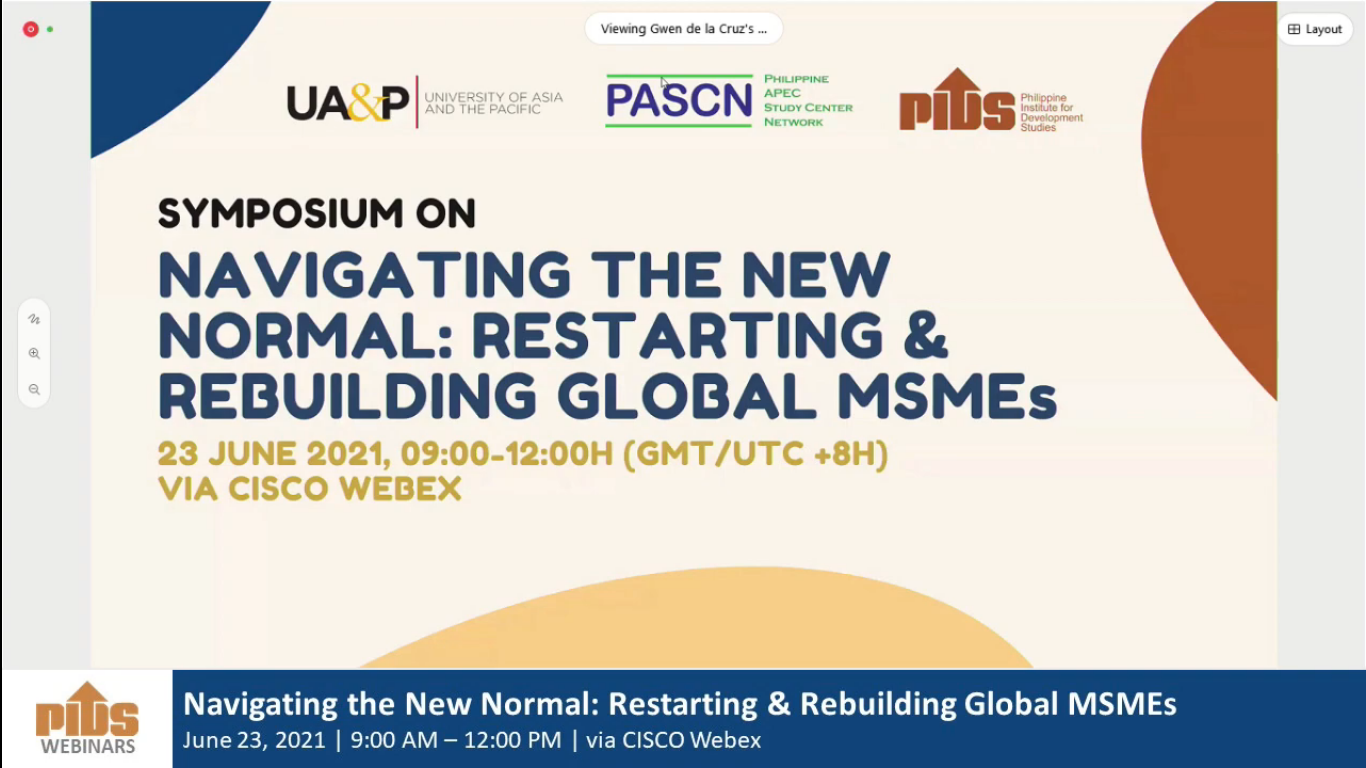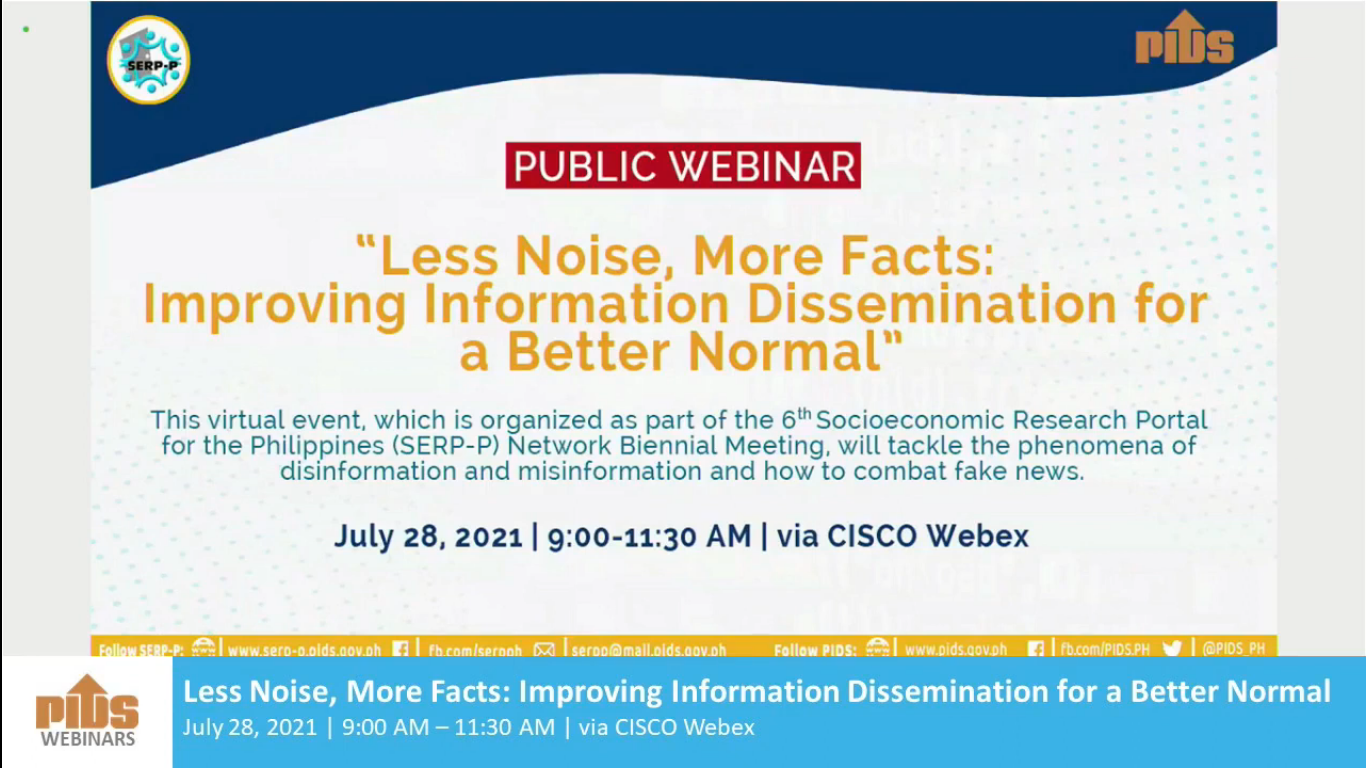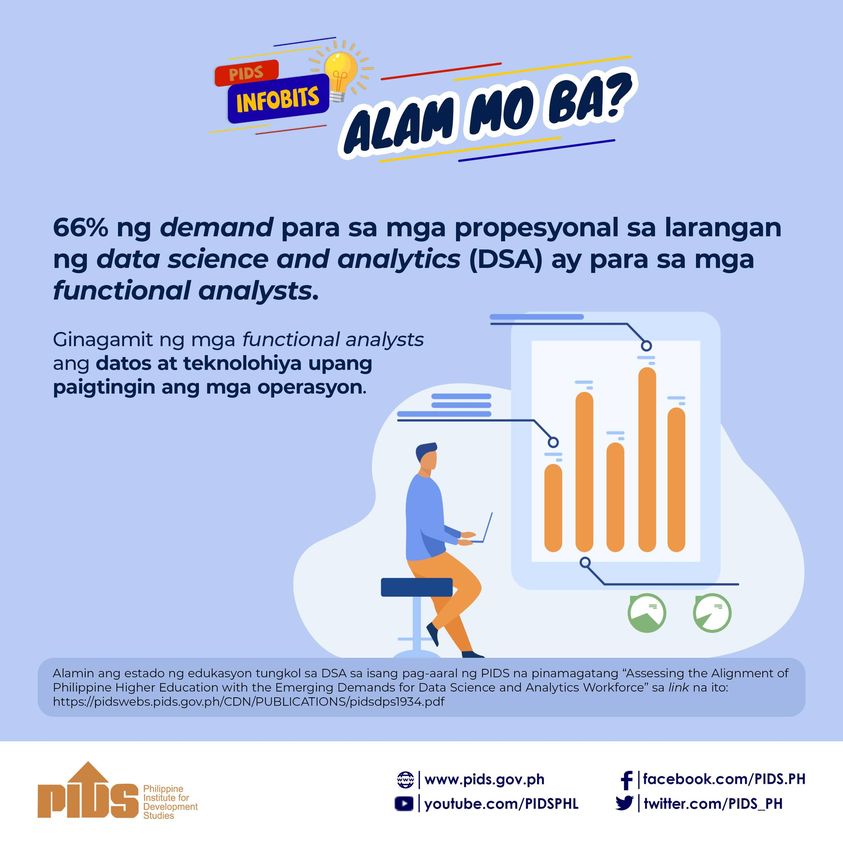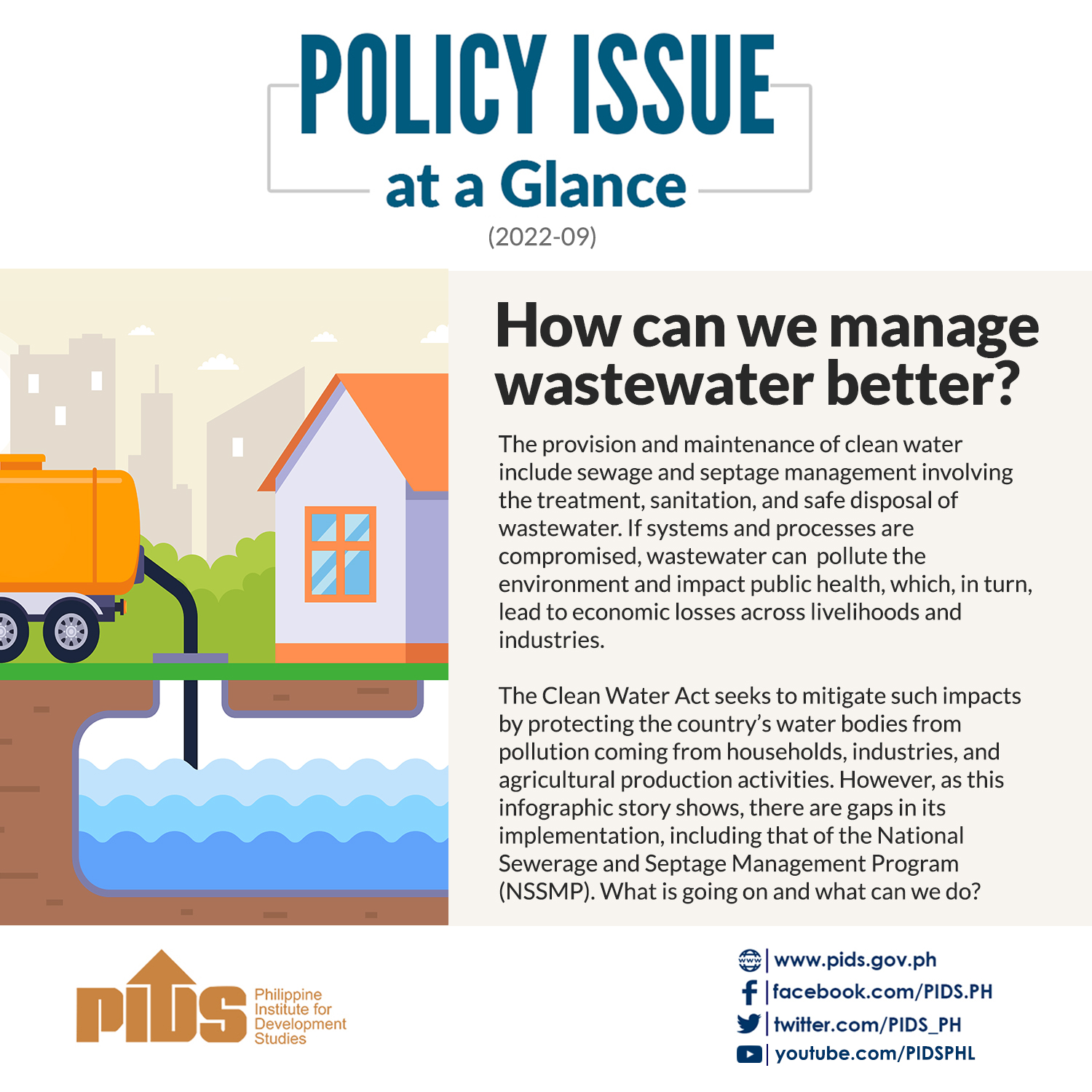A few days ago, I had the opportunity to represent Emmanuel de Guzman, vice chairman and executive director of the Climate Change Commission, and joined other esteemed speakers and panelists namely, Jerry Velasquez, director of the Division of Mitigation and Adaptation of the Green Climate Fund; Koh Lian Pin, conservation science professor, Technology and Policy of the Department of Biological Sciences, Faculty of Science of the National University of Singapore; and John Eric Francia, president and chief executive officer of AC Energy Holdings, in the Green and Inclusive Recovery webinar of the 7th Annual Policy Public Conference organized by the Philippine Institute for Development Studies.
Am glad to share the full message of Secretary de Guzman to our readers:
"The ongoing health crisis has exposed our vulnerabilities. It has upended the way we live and the way we do business and triggered a domino effect that has destabilized the interconnected system of human health, the environment and economic stability.
"Unfortunately, the pandemic is not the only threat we face today. Climate change is a much bigger threat that has already taken so much away from us and it will continue to kill our people, destroy our environment, and bring our cities and communities into ruin if we allow it to maintain its trajectory.
"This is not mere conjecture but science. The Intergovernmental Panel on Climate Change (IPCC) recently released the first of its four-part Sixth Assessment Report (AR6). It confirms the grave risks facing us in a warming world and tells us that the climatic changes we are seeing today are unprecedented over thousands to millions of years.
"It confirms that temperatures are higher than they have ever been in the last 125,000 years. It tells us without any ambiguity that human influence is 'unequivocal.'"
The report also shares the troubling findings on the consequences if we fail to heed the science. Climate risk spares no one. Every home washed away by rampaging floodwaters, every forest that goes up in smoke due to ever drier and ever hotter conditions, every life lost due to disaster — these are all part of the inventory of suffering due to the world warming by just 1.1 degrees Celsius due to human-made climate change. Imagine what more will happen if it warms further.
"The AR6 reaffirms what we already know so far: that the climate crisis is real; that its effects, some of which are or will be irreversible, are becoming more frequent, more severe. We have very little time left before we breach our climate threshold of 1.5 degrees Celsius.
"Most importantly, AR6 tells us that something can still be done but it must be done now. The Paris Agreement's 1.5 degrees Celsius temperature limit remains within reach so long as the calls from science for urgent action on climate are acted upon. Unless we drastically reduce our greenhouse gas emissions to limit global warming, we should expect further increases in hot climate impact drivers, including heavy precipitation and associated flooding, intensification of tropical cyclones and storms, increased precipitation and increases in aridity, floods and heat waves, in cities.
"The effects of crises are felt in the here and now; it can sometimes draw us into myopia, addressing the immediate while placing the long term on the back burner. But the climate crisis did not happen overnight; the world is only now coming to a boil but the climate crisis simmered over centuries of human activity, building on cycles of extraction and consumption that were entrenched over generations' worth of decisions. As such, its solutions likewise require long-term thinking, along with drastic action that can dismantle these structures with urgency.
"The theme of this year's Annual Public Policy Conference, 'Reset and rebuild for a better Philippines in the post-pandemic world,' aptly stresses that in rebuilding from the crippling effects of the Covid-19 pandemic, it is not enough to merely adjust to a new normal: we must create a better one. We cannot go back to business as usual. We must embrace practices that will place equal importance on economic, social and environmental well-being, not only for the now but for tomorrow. We do this not through speculation but through decisions and policies informed by science. We must increase recognition of the relevance of research and development while fusing scientific knowledge, innovation and policymaking. In doing so, we protect the gains we have achieved so far while averting disasters, safeguarding jobs, incomes and livelihoods, enhancing food supply, promoting environmental sustainability and combating poverty. Through science, our cities will be planned better, our farmers and fisherfolk will be more adequately supported, our people will live in a healthier and safer environment, and our economic growth will finally start to benefit all.
"Taking into consideration the threat to humanity brought about by the ongoing health, climate and environmental crises, we must ensure that our actions do not restore the vulnerabilities we had before. We have to rebuild our communities, reduce vulnerabilities and address the climate risks promoting a climate-adaptive, disaster-resilient, risk-sensitive sustainable development.
"We must be tireless in providing solutions that address the country's pressing challenges in environmental sustainability, jobs and livelihoods, rural development and disaster resilience.
"I urge not only the national government but every Filipino to contribute to the staging of a resilient and sustainable pandemic recovery for us to avoid and overcome future and interconnected threats. I enjoin you, fellow public servants, to continue what we have begun with renewed inspiration and a sense of urgency. Let us make sure that we will achieve genuine growth and development through the indispensable triad of science, technology and innovation.
"The only way forward is to heed the science and make decisive actions toward staging a recovery that will pave the way for a better life for the Filipino people — one that will ensure a healthier, greener and safer future for the generations that will come after us."
At the end of the Q&A session, I shared three messages with participants in the Webex room:
– As the changing climate affects every facet of our human lives, it is no longer confined as an environmental concern, it is now an "everything issue."
– The new IPCC report, WG1's "Climate Change 2021: The Physical Science Basis," was explicit that climate change is happening and is unequivocally caused by human activities. It is, therefore, imperative that we act now as our window of opportunity is closing.
– The work on addressing the climate crisis is not only within the sphere of government. Collaboration among stakeholders — national government agencies, local government units, the academe, private sector, civil society and the public — is urgently needed.


